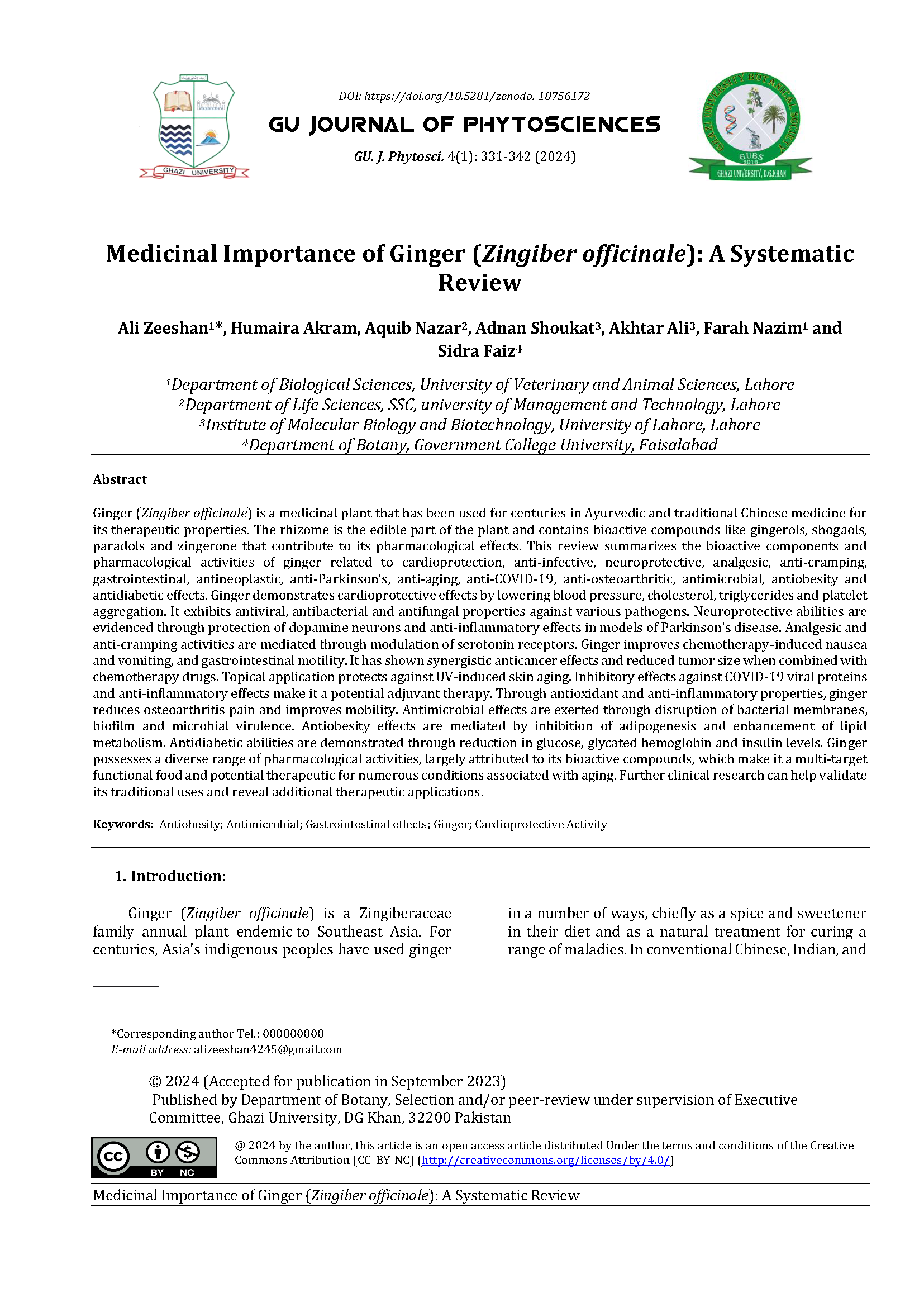Medicinal Importance of Ginger (Zingiber officinale),A Systematic Review
Keywords:
Antiobesity, Antimicrobial, Gastrointestinal Effects, Ginger, Cardioprotective ActivityAbstract
Ginger (Zingiber officinale) is a medicinal plant that has been used for centuries in Ayurvedic and traditional Chinese medicine for its therapeutic properties. The rhizome is the edible part of the plant and contains bioactive compounds like gingerols, shogaols, paradols and zingerone that contribute to its pharmacological effects. This review summarizes the bioactive components and pharmacological activities of ginger related to cardioprotection, anti-infective, neuroprotective, analgesic, anti-cramping, gastrointestinal, antineoplastic, anti-Parkinson's, anti-aging, anti-COVID-19, anti-osteoarthritic, antimicrobial, antiobesity and antidiabetic effects. Ginger demonstrates cardioprotective effects by lowering blood pressure, cholesterol, triglycerides and platelet aggregation. It exhibits antiviral, antibacterial and antifungal properties against various pathogens. Neuroprotective abilities are evidenced through protection of dopamine neurons and anti-inflammatory effects in models of Parkinson's disease. Analgesic and anti-cramping activities are mediated through modulation of serotonin receptors. Ginger improves chemotherapy-induced nausea and vomiting, and gastrointestinal motility. It has shown synergistic anticancer effects and reduced tumor size when combined with chemotherapy drugs. Topical application protects against UV-induced skin aging. Inhibitory effects against COVID-19 viral proteins and anti-inflammatory effects make it a potential adjuvant therapy. Through antioxidant and anti-inflammatory properties, ginger reduces osteoarthritis pain and improves mobility. Antimicrobial effects are exerted through disruption of bacterial membranes, biofilm and microbial virulence. Antiobesity effects are mediated by inhibition of adipogenesis and enhancement of lipid metabolism. Antidiabetic abilities are demonstrated through reduction in glucose, glycated hemoglobin and insulin levels. Ginger possesses a diverse range of pharmacological activities, largely attributed to its bioactive compounds, which make it a multi-target functional food and potential therapeutic for numerous conditions associated with aging. Further clinical research can help validate its traditional uses and reveal additional therapeutic applications.

Downloads
Published
How to Cite
Issue
Section
License
Copyright (c) 2024 Authors

This work is licensed under a Creative Commons Attribution-NonCommercial 4.0 International License.
All works published by the GU Journal of Phytosciences are freely available to copy, distribute, transmit, and adapt the work provided the original work and source are appropriately cited under a CC BY-NC 4.0 International License. The CC BY-NC licence allows for maximum re-use of open-access materials, and the author has full copyright over their publication. Under this license, users are free to share (copy, distribute, and transmit) and adapt for any purpose, but not for any commercial use (read full legal code).
Under Creative Commons, authors retain copyright in their articles.




